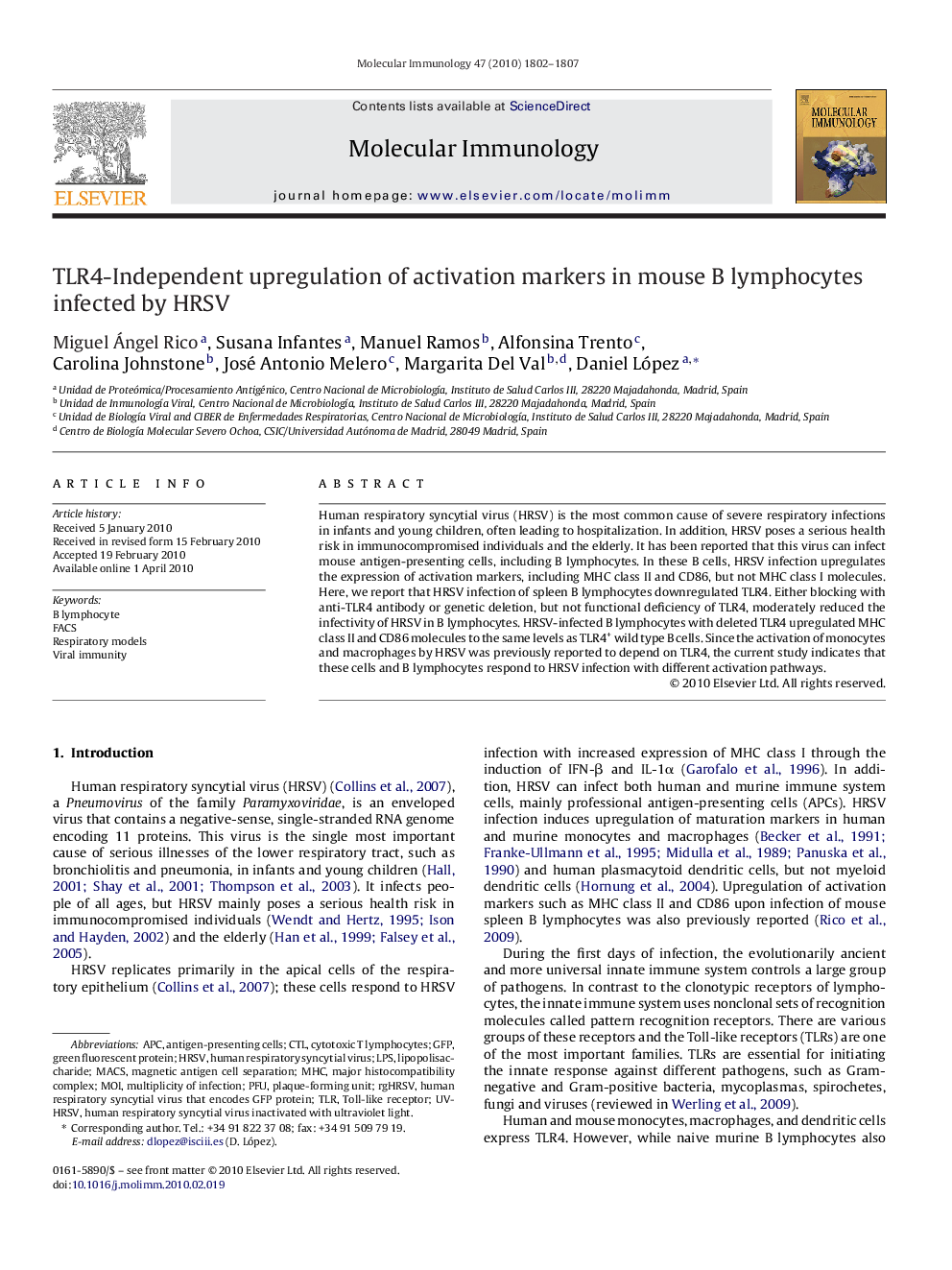| Article ID | Journal | Published Year | Pages | File Type |
|---|---|---|---|---|
| 2831777 | Molecular Immunology | 2010 | 6 Pages |
Human respiratory syncytial virus (HRSV) is the most common cause of severe respiratory infections in infants and young children, often leading to hospitalization. In addition, HRSV poses a serious health risk in immunocompromised individuals and the elderly. It has been reported that this virus can infect mouse antigen-presenting cells, including B lymphocytes. In these B cells, HRSV infection upregulates the expression of activation markers, including MHC class II and CD86, but not MHC class I molecules. Here, we report that HRSV infection of spleen B lymphocytes downregulated TLR4. Either blocking with anti-TLR4 antibody or genetic deletion, but not functional deficiency of TLR4, moderately reduced the infectivity of HRSV in B lymphocytes. HRSV-infected B lymphocytes with deleted TLR4 upregulated MHC class II and CD86 molecules to the same levels as TLR4+ wild type B cells. Since the activation of monocytes and macrophages by HRSV was previously reported to depend on TLR4, the current study indicates that these cells and B lymphocytes respond to HRSV infection with different activation pathways.
